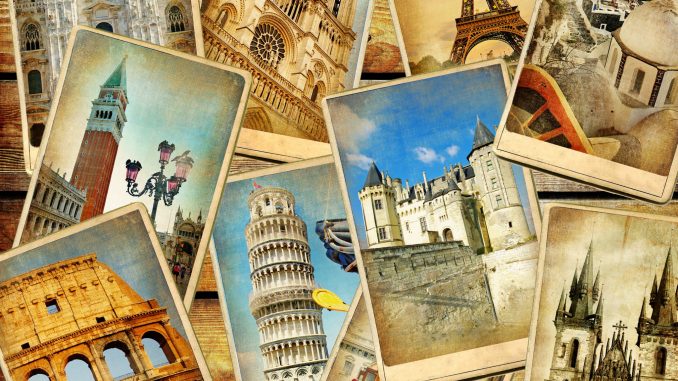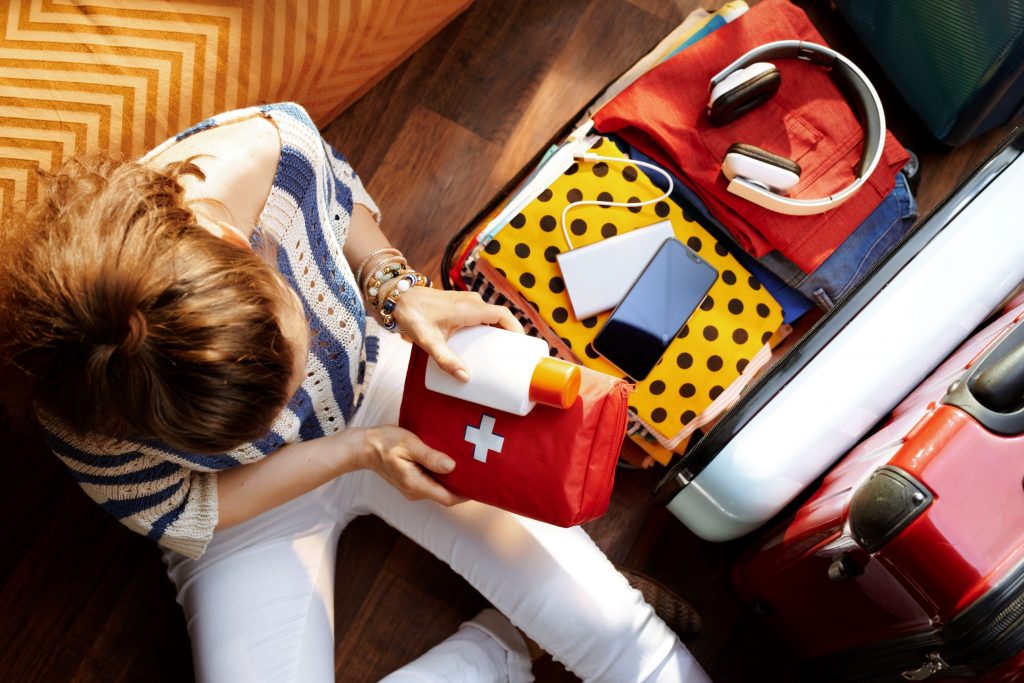
If you’re new to the idea of travelling to Europe, you might feel a little overwhelmed by the idea of going to a continent you know very little about and never thought of going to. The good news is that it isn’t a particularly difficult task to plan a trip to Europe. The difficulty lies in finding the right information that can give you the confidence you need to embark on the task of planning your first trip to Europe.
Europe is a massive continent that has a lot to offer first-time travellers. Whether you’re looking for a weekend getaway, a week-long adventure, or a backpacking adventure across the continent, there’s something for everyone in Europe.
Planning your first trip to Europe can be daunting, but we’ve put together some helpful advice that can help you get started. In this guide, we’ll give you the top 14 best tips for planning your first trip to Europe.
1. Check flight prices ahead of time
Before you book your flight, you should check if you’re getting an expensive seat or if you can get a cheaper seat by booking a few weeks ahead of time. If you’re flying to Europe on a budget, you should always fly on a low-cost airline like Ryanair, EasyJet, or WizzAir. You can often get cheap flights to Europe by flying to a country near the border of the continent and then taking a train or bus across the border.

2. Try to visit during the off-season
The off-season can be an excellent time to visit Europe, as many cities are not as crowded and there are often fewer tourists. Visit during the off-season to get the most out of your trip to Europe, as it will be less crowded, and you’ll also find that many cities are quieter, which makes it a good time to immerse yourself in the culture and learn more about the way of life in Europe.
3. Join a tour group
Joining a tour group can be a great way to get the most out of your trip to Europe. You’ll have the opportunity to meet other travellers and share experiences with them, which can be fun and help you feel more comfortable in a new country. You can join a tour group that goes to all of the most popular attractions, or you can join a group that is based in Europe and can help you explore the culture and history of a different country.
4. Get a good guidebook
The best way to get a good overview of your destination is with a good guidebook. They’ll help you find the best things to do in your destination, help you plan your itinerary, and they’ll also help you navigate around the city you’re staying in. Most guidebooks are available as digital versions these days, and they’re a great way to save paper and resources.
5. Research your route
The first thing you need to do before you plan your trip to Europe is to research your route. We’re not talking about the route you’re going to take on your trip itself, but the route you’re going to use to plan your trip.
To plan your trip, you need to have a route set in your mind. A route is a sequence of places you want to visit, from beginning to end. If you don’t have a route in mind, you’ll just be wandering from place to place with no clear goal in mind.
A route can simply be one city you have on your bucket list. Or it can be the route of a backpacking adventure across Europe. There is no right or wrong route; you just need to have a route in mind before you start planning your trip.
6. Find an accommodation
Finding accommodation is one of the key steps to planning your trip to Europe. While it might feel like you have a million options, it’s important to narrow down your search and focus on finding a space that suits you best. While you might want to find a hostel or hotel that’s more budget-friendly, it might be more important for you to find somewhere you feel comfortable staying. While it might sound a little silly to think about, it’s really important to find somewhere you feel at home. You’re going to be spending a lot of time in that space, and if you don’t feel at peace in it, then you’re going to have a bad time.
7. Don’t forget to pack medication
Before you leave, make sure that you have all of your medication packed up and ready to go. This includes any prescription medications you are taking, any over-the-counter medications that you need to take regularly, and any dietary restrictions or concerns that you have.
Make sure that you’ve got your contact information and a way for someone to get in touch with you, in case you need to be contacted during your trip to Europe. Also, make sure that your phone is fully charged and charged up with the chargers you’ll need to use when you’re travelling, as there is nothing more frustrating than being unable to make a phone call when you need to.

8. Get a good travel insurance
You should get good travel insurance while you are planning your trip to Europe. This will cover you in case of an emergency, such as a medical emergency. Make sure that your travel insurance covers medical expenses and covers you for medical emergencies, such as emergency medical evacuation home. This is especially important if you have a pre-existing condition.
9. Eat, drink, and relax
One of the most important aspects of travelling to Europe is the food. For the most part, Europeans are extremely welcoming and will be more than happy to invite you into their homes for dinner. So, you should eat like a European, which means you should eat a lot of meat. You should also drink like a European, which means you should drink a lot of beer and wine.
One important thing to note is that most European countries have strict laws around drinking in public places. If you plan on drinking, you should be especially careful if you’re travelling with friends who aren’t familiar with European drinking laws. If you’re travelling to Europe for other activities, like sightseeing or meeting friends, you should drink before you arrive so you know when to pace yourself.
10. Be aware of the weather
Weather in Europe can be unpredictable, but the general rule is that the north of the continent is colder than the south. If you’re planning a trip to Europe during the summer months, you should bring plenty of sunscreens and wear light clothing that you can easily take off if it gets too warm. If you’re visiting Europe during the winter, you should bring a jacket or sweater plus gloves if you’re visiting cities. You should also avoid doing any activities that require you to be outdoors for long periods because they can get very cold.
11. Take advantage of public transport
Public transport in many European cities is efficient, cheap, and frequently available, which makes it a great option for long-distance travel. If you’re visiting Europe as a solo traveller or a couple, you should take advantage of public transport to save money on travel expenses and make it easier to get around.
Some of the best cities for public transport in Europe are Amsterdam, Barcelona, Berlin, Cologne, London, Madrid, Paris, and Vienna. If you’re travelling to any of these cities, you should make public transport your main form of transportation because it can be incredibly cheap and efficient.
12. Go city hopping
If you’re visiting multiple cities in Europe, you should try to visit each city at least once so you can experience a different part of the city with every visit. You should also try to go to different parts of a city each time you visit because each part of a city has its own unique culture that you may miss if you only visit one part of it.
13. Go culture spotting
One of the best ways to experience a different culture in Europe is by going to museums and experiencing the art firsthand or by taking day trips to see different places with different cultures. Another great way to experience a different culture in Europe is by visiting different markets, where you can see different people from around the world selling their goods.
14. Eat street food
If you’re going to Europe to eat some of the most amazing food you’ve ever had, then you need to plan to eat street food. Think about it – you’re going to be in Europe for a long time, and you’ll probably end up walking a lot. So why not eat street food?
Some of the best food you’ll find in Europe is sitting on a street somewhere. There’s nothing like a nice baguette, a piece of pizza, a slice of salami, or some cookies sitting on the side of a road.
You’ll be going to some places where street food isn’t very common, so don’t be afraid to try something new. You might be pleasantly surprised.
15. Respect the culture
One of the most important steps to planning your first trip to Europe is to respect the culture. While it might be easy to breeze through Europe and treat the people you encounter as tourists, you must respect the culture of the countries that you visit. When you’re travelling to Europe for the first time, it can be easy to just go wild and party all the time, but you must respect the culture of the places you visit.
16. Go off the beaten path
When you’re planning your first trip to Europe, the last thing you want to do is go on the beaten path. You want to make sure that you’re getting the absolute most out of your trip, and you want to make sure that you’re not just going to a whole bunch of places that you already know.
While Europe is a whole lot of things, it’s also a whole lot of different places that you probably haven’t been to. Make sure that you’re combing the cities and towns you visit for the most offbeat places.

17. Keep safe
One of the most important things you can do to make sure that you have a safe trip to Europe is to stay safe. While you might think that you’re invincible on your trip to Europe, you have to remember that you’re just a normal person. Make sure that you’re keeping your head up and checking your surroundings. Make sure that you’re staying as safe as possible, and you’re not putting yourself in any dangerous situations.
18. Go for a walk in the open-air
Travelling to Europe is all about getting a real sense of the place, and the best way to do this is by walking in the open air. You’ll get a chance to see some amazing sights and smell some amazing smells along the way.
You’ll also get a chance to relax as you walk, which is a great thing to do when you’re travelling. You’ll also get a chance to meet some people while out walking in the open air, which is a great way to experience the culture of a place.
19. Don’t miss the Medieval architecture
If you’re planning a trip to Europe, then you’ll probably end up visiting some medieval architecture at some point. This shouldn’t be missed.
Many of the most amazing buildings in Europe are from the medieval period. You’re going to get a chance to explore some amazing medieval architecture, and this is something you shouldn’t miss out on.

20. Visit a theme park
There are so many great theme parks in Europe that it’s almost a crime not to visit at least once.
By visiting a theme park, you’ll get a chance to experience some adrenalin, get your heart pumping, and you’ll also get a chance to see some amazing sights.
21. Go for a round of golf
There are so many amazing golf courses across Europe that it’s almost a crime not to go and play at least one round.
You’re going to find some of the most amazing golf courses across Europe, and by playing around, you’ll get a chance to experience some amazing scenery while you play.
We recommend going for a walk after you’re done playing golf as well, to get the full experience of Europe.
Bottom Line
The good thing about planning your first trip to Europe is that it’s pretty easy. The hardest part is going to be narrowing down your choices to a handful of destinations and then figuring out the best way to make those travel plans work.
But, you’re in for a treat. This article has everything you need to get started. From the best time of year to visit Europe, to what to pack, we’ve got you covered.
